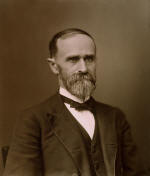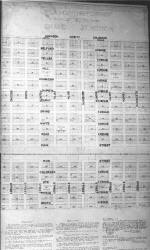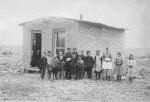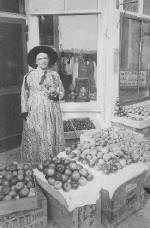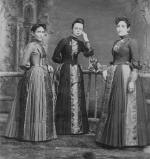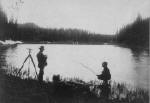
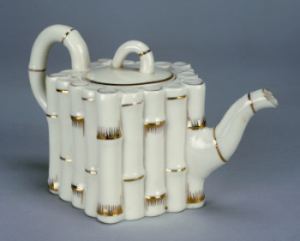
Benton and Evelyn Canon settled in Grand Junction in 1887. This bamboo pattern Belleek teapot, a fine porcelain from Ireland, was a wedding present that traveled with them.
The 1880s
The 1880s was a decade of beginnings. Planners and visionaries in 1881 saw
the promise in this broad valley. The arid Grand Valley was a desert, but it
was traversed by two major rivers. Water from the Grand River ( later
renamed the Colorado ) was soon brought to town and farms, via dams, canals
and ditches. The first of many canals were the Pioneer Canal, and the Pacific
Slope Ditch in 1882.
Grand Junction was incorporated in 1882, and by 1883 Mesa County was
established with Grand Junction as the county seat. The town�s population in
1885 was 378, according to a special Colorado State Census, but other
sources claimed it was over 800.
